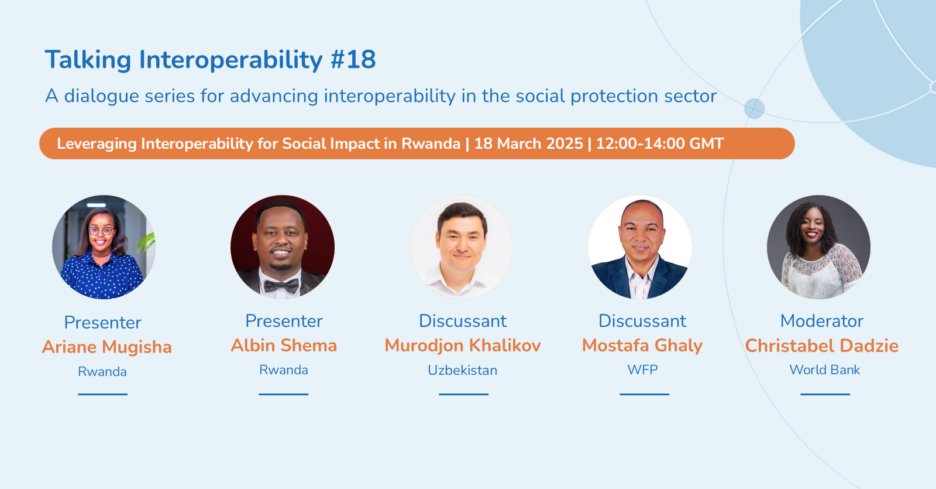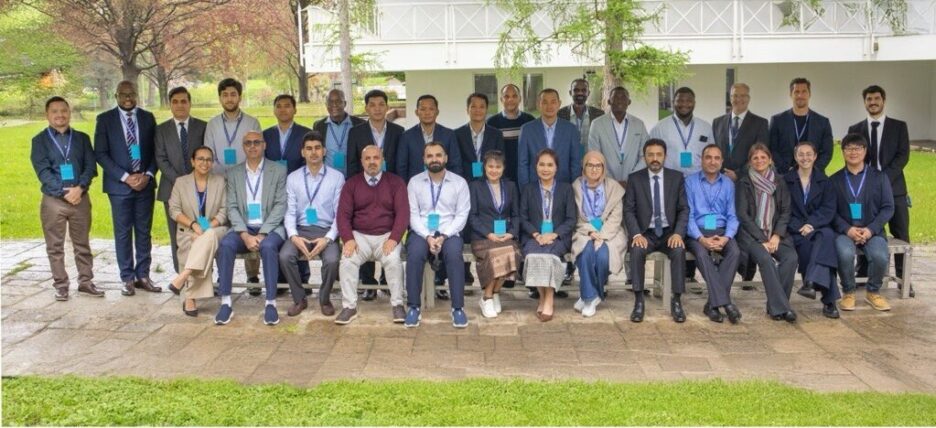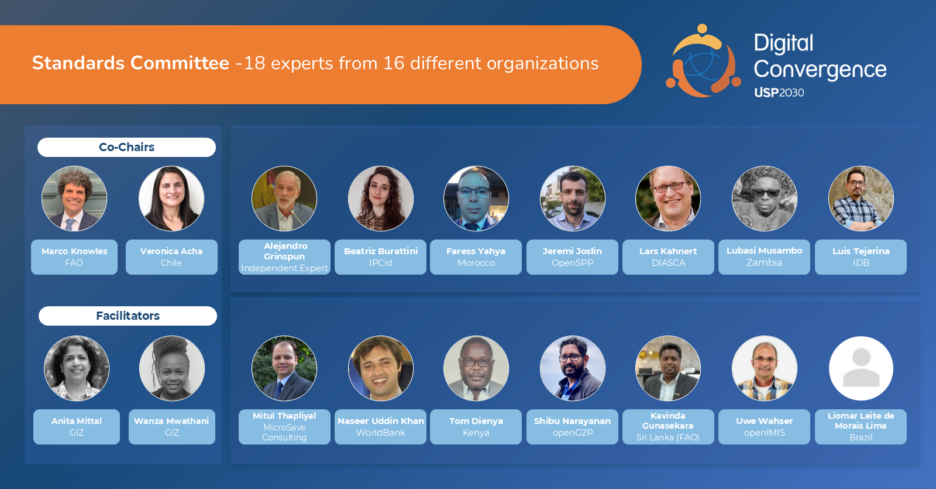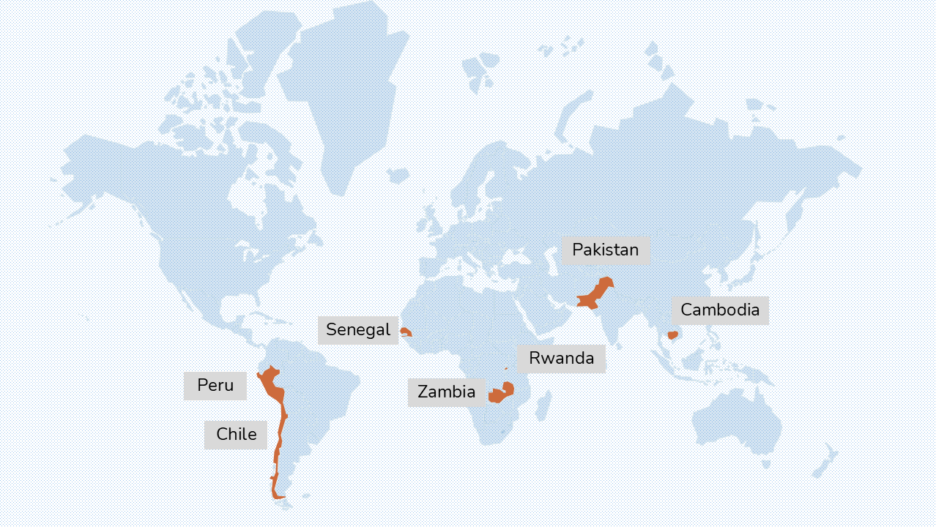Newsletter – April 2025
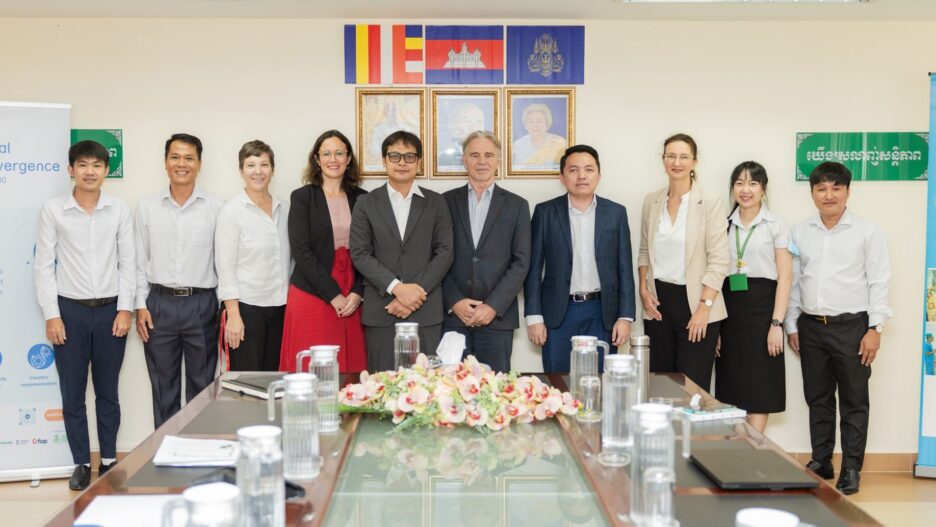
Welcome to our second quarterly newsletter of 2025! Inside, you’ll find an introduction to DCI, a recap of our recent work, and a preview of exciting upcoming events and opportunities.
Subscribe now to continue receiving updates from us.
Contents
About DCI | Upcoming Events | Recent Events | Standards Development | Country Implementation Support | Announcement: DCI Helpdesk
Upcoming events
Dialogue series: Session 19 – Türkiye and South Africa
June 3, 2025 at 14:00 CEST
The presentations in this session will highlight the approaches and implementation experiences from two countries that are at varying stages of integrating delivery mechanisms across social assistance and labor market programs – Türkiye and South Africa.
Reflections on the experiences of similar efforts in the UK and Brazil will provide additional insights on the pathways that can be adopted across a diverse range of country contexts to advance integration of delivery mechanisms across various pillars of social protection.
Register now for Talking Interoperability #19 – Türkiye and South Africa.
Recent Events
Study Tour in Nepal
As part of DCI’s training initiatives, a study tour recently took place in Nepal. Delegations from Senegal (ICAMO & DPS), Ethiopia (EHIS), and Zambia (NHIMA) attended and explored the successful implementations of openIMIS for Nepal’s accident and disability insurance and health insurance programs.
This collaborative effort focused on three key areas:
- showcasing openIMIS implementation
- gathering functional requirements for implementing countries
- contributing to the development of global openIMIS solutions
openIMIS is an open-source software and certified digital public good which provides versatile solutions to manage health financing and social protection programs, including: cash transfers, health insurance, employment injury insurance, vouchers, and social registries.
As part of DCI country implementation support, Senegal plans to implement openIMIS, while Zambia is exploring it. Stay tuned for a DCI article about the study tour. Meanwhile, check out the recent openIMIS article on the tour entitled “South-south cooperation at its best.”
The tour was designed and implemented in partnership with International Labour Organization (ILO), openIMIS, Deutsche Gesellschaft für Internationale Zusammenarbeit (GIZ) GmbH, and Expertise France. This tour was made possible by support from the European Commission, Federal Ministry for Economic Cooperation and Development (BMZ), ILO, GIZ and Swiss Agency for Development and Cooperation.
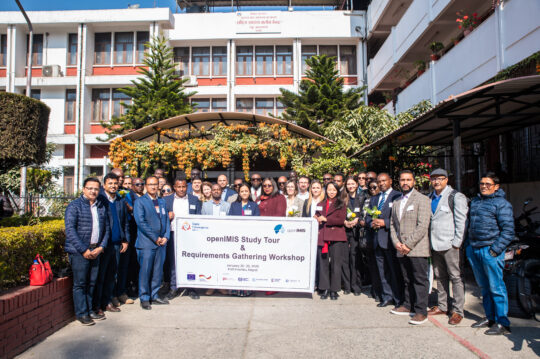
Our cooperation partners brought us together to build alliances both with the technical experts from our partner agencies and with other country teams. Now we have people we can call on to help us implement our own social health insurance.
-Mrs Perpetual Halindi Kalobwe, Director Health Insurance Services at NHMIA in Zambia
Talking Interoperability #18 – Rwanda
The Talking Interoperability #18 webinar on Rwanda covered the role of Rwanda’s Social Registry in streamlining beneficiary identification, reducing duplication, and ensuring targeted support for vulnerable populations. Additionally, the country presented interoperability challenges and potential solutions in Rwanda’s social protection system.
The session also provided insights into future initiatives aimed at strengthening interoperability, aligning with Rwanda’s NST2 priorities and broader digitalization strategies. Attendees gained a deeper understanding of how Rwanda is leveraging digital tools to create a more responsive, efficient, and transparent social protection system. The recording and the presentation are available here.
Successful Completion of the Residency Phase of the SPMIS Training in Turin
As part of Digital Convergence Initiative (DCI)’s capacity development and training efforts, the residential phase of the pilot course on the Design, Planning and Implementation of Social Protection Management Information Systems (SPMIS) was successfully delivered at the ITCILO campus in Turin, Italy. Delegations from Zambia, Pakistan, Cambodia, Peru, the Kurdish region of Iraq and Lao PDR, together with representatives from the ILO and GIZ, convened to strengthen their expertise in designing and implementing digital solutions for social protection.
This collaborative effort aimed to enhance participants’ technical and strategic skills for SPMIS design and development, foster leadership and change management capabilities and support the advancement of country-level digital transformation roadmaps for social protection.
The course was developed and implemented by the ILO and ITCILO, in collaboration with the openIMIS Global Programme and under the umbrella of the DCI. Following two weeks of online sessions and self-guided activities, participants engaged in an intensive four-day programme that combined expert-led discussions, interactive group work and tailored mentorship. Key topics included administrative process design, enterprise architecture, cost evaluation, change management, project management and system maintenance cycles.
Participants translated their learning into practice through dynamic group assignments, connecting technical concepts to the realities of institutional environments. The course culminated in a series of group presentations outlining the design and deployment of SPMIS solutions tailored to their national contexts, bridging theory with operational strategies and advancing the refinement of digital transformation plans for social protection.
This training represents a critical milestone in building inclusive, sustainable and fit-for-purpose digital ecosystems for social protection. The residential phase forms part of a broader blended learning journey, with pre- and post-course components designed to ensure the translation of knowledge into tangible results.
The SPMIS course was made possible through the support of the European Commission, the German Federal Ministry for Economic Cooperation and Development (BMZ), GIZ, ILO and ITCILO. We extend our sincere thanks to all participants, facilitators and partners for their dedicated support and commitment to advancing universal social protection through digital transformation.
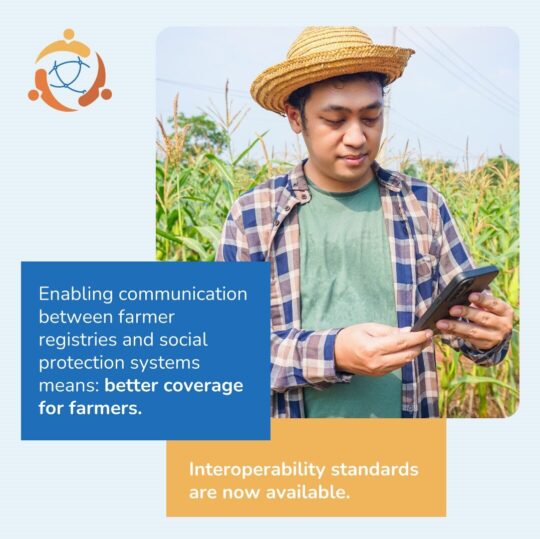
Farmer registry standards released
Farmer Registry and Social Protection Interoperability Standards have been endorsed by the USP2030 partnership and are now available. The standards define clear interoperability requirements between the two systems, providing practical examples of data exchange and specifying the necessary information flow between these systems.
Why are farmer registries important?
Smallholder farmers are the backbone of global food security, yet they face immense challenges: economic shocks, climate risks, and limited access to essential services. To bridge this gap, DCI has developed crucial interoperability standards to link farmer registries with social protection systems. This milestone will significantly improve the delivery of social protection benefits to vulnerable farmers globally.
Farmer registries support informed decision making and tailored social protection policies for farmers, such as agriculture extension services, inputs, subsidies, credit, market access, and cooperative/agribusiness services.
Recommended resources
Check out the announcement from the committee co-chair FAO on the standards, and the 2023 FAO-GIZ publication on Farmer registries and social protection information systems.
Committee members
The Standards Committee for the Interoperability of the Farmer Registry and Social Protection Systems brought together 18 experts from 16 different organizations including government agencies, international organizations, digital public infrastructure (DPI) initiatives, digital public goods (DPGs), the private sector and individual experts.
Next steps under standards development
DCI is working on interoperability of employment, ID, early warning systems and payment systems, and will hold more interoperability webinars. A Talking Interoperability webinar featuring data exchange bus/middleware for interoperability will be coming up in June. For any questions on the application of the standards or to get involved, reach us at contact@spdci.org.
Country implementation support
DCI implementing partners assist selected countries in digitally transforming their social protection systems to enhance the delivery of benefits and services.
The DCI supports a wide range of measures, including but not limited to:
- implementing global interoperability standards
- integrating social protection information systems
- improving grievance redressal mechanisms
- leveraging Artificial Intelligence (AI) to improve efficiency
In focus: country implementation work in Cambodia, Chile, and Pakistan
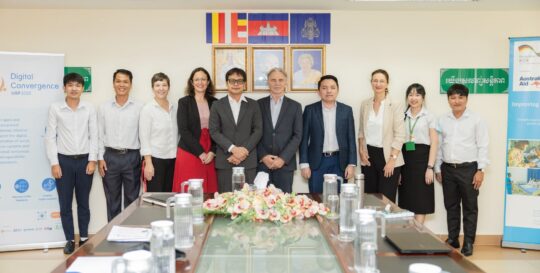
Cambodia
In Cambodia, DCI, through GIZ, is working with General Secretariat for the National Social Protection Council (GS-NSPC) and other social protection stakeholders to equip Cambodia’s Digital Social Protection Platform (DSPP) with a harmonized grievance and feedback web portal that collects requests, complaints, and feedback from beneficiaries on social protection schemes.
Further country support includes using AI to improve the functionality of Cambodia’s Social Protection Registry (SPR), and testing Nortal’s prototype for compliance with Government’s interoperability layer of DSPP’s Information Mediator building block.
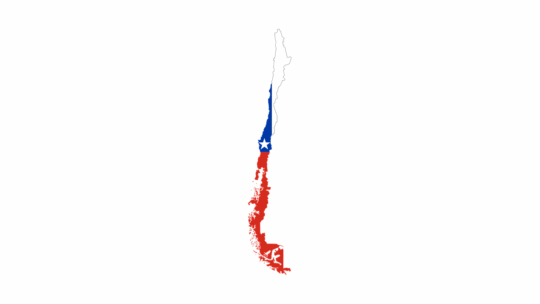
Chile
In Chile, DCI, through FIAP, is working with the National Service for the Elderly (SENAMA), under the Ministry of Social Development and Family, with the purpose of improving access and quality of social protection services for older persons, increasing coverage through the digital transformation of SENAMA’s processes, and ensuring coordination with other related public institutions and with end‑service providers.
DCI’s support is directed at integrating and making SENAMA interoperable with existing information systems and other institutions within the social protection eco system.

Pakistan
On 29 April, consultations launched in Khyber Pakhtunkhwa (KP) province, Pakistan for the development of the province’s Integrated Beneficiary Registry. The work is a joint collaboration between GIZ and ILO (the latter under the DCI programme).
The workshop, jointly convened by the Sustainable Development Unit and the Social Protection Reform Unit, with financial and technical support from the ILO under DCI, brought together technical representatives from twelve provincial departments. The sessions provided an overview of the social protection landscape in KP and presented the rationale, design architecture and functional requirements for an Integrated Beneficiary Registry aimed at improving targeting and ensuring equitable programme coverage. Further details are available in the press release.
Announcement: DCI helpdesk
The DCI Helpdesk is a technical support facility launched to provide targeted and timely expert support to countries to guide decision-making, explore digital solutions, and ensure strategic, informed actions that drive inclusive and effective digital transformation of social protection systems. The DCI Helpdesk focuses on enhancing the effectiveness, efficiency, and transparency of social protection information systems.
The helpdesk provides a range of services, including:
- Interoperability: Addressing challenges and providing support related to the implementation of digital standards for interoperability.
- Technical Advice: Provide technical advisory and/or implementation support for digital solutions across the social protection delivery chain e.g. grievance redressal mechanisms.
- Strategic guidance: Supporting policymakers and practitioners on the development of digital transformation strategies for social protection sector.
The helpdesk prioritises support based on:
- Requests from governments: Prioritize requests from governments to ensure alignment with social protection policies and foster ownership and accountability.
- Presence of DCI partners and members in countries: Leveraging existing partnerships from funders, implementing partners at country level for enhanced impact
Note on scope of support: Support is offered exclusively in the form of technical expertise and advisory time (10-50 Days), facilitated by a pool of experts specialising in digital social protection systems and AI. Direct financial support and financing of IT/digital hardware and infrastructure cannot be provided.
To access support from DCI Helpdesk, country governments can reach out to DCI Team at contact@spdci.org.
Special Focus
The AI Hub of DCI focuses on responsible, innovative and sovereign AI adoption in social protection systems. It offers countries technical advisory services for AI innovation and use case scoping. Additionally, the AI hub seeks to provide policy guidance on responsible AI and data usage, help countries develop governance and regulatory frameworks that ensure rights-based, non-discriminatory AI adoption, adhering to principles such as transparency and equity.
The AI Hub has its own set of funding and implementing partners, including GIZ, ADB, BG BAU, DRV, ISSA, the Government of Canada, and DataPrev.
Subscribe to our mailing list to receive updates on DCI’s work and events.
